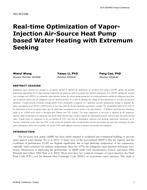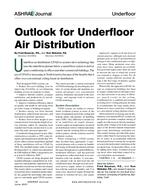This self-directed learning course helps you develop an understanding of basic concepts of thermodynamics. After completing this course, you should know closed and open thermodynamic systems, how to use thermodynamic tables and charts, fundamentals of the Ideal Gas Law and the concepts of heat and work. You will also learn about the First Law of Thermodynamics as it applies to closed and open systems, the Second Law of Thermodynamics, the Carnot cycle, ideal and actual refrigeration cycles and combustion and thermochemistry.
For more information on ALI courses, training and continuing education, please visit the ASHRAE Learning Institute.
We are revising our online bookstore to change how shipping and handling charges are calculated. At the current time, it is based on price of the items order. To compensate for the higher cost of CD products such as this one, the price for this product has been lowered online to offset the cost of shipping and handling that you will be charged.
What You Will Learn
This book will help develop an understanding of the basic concepts of thermodynamics. Topics include properties of a system, processes and cycles, Ideal Gas Law, the laws of thermodynamics, refrigeration cycles and thermochemistry.
After completing the course, you should know:
- Closed and open thermodynamic systems
- How to use thermodynamic tables and charts
- The fundamentals of the Ideal Gas Law
- The concepts of heat and work
- The First Law of Thermodynamics applied to closed and open systems
- The Second Law of Thermodynamics
- The Carnot cycle
- Ideal and actual refrigeration cycles
- Combustion and thermochemistry
Course Content
- Introduction to HVAC — HVAC heating, ventilating and air-conditioning; the major processes of air-conditioning; thermodynamics and psychrometrics.
- Systems, Properties, States and Processes — Closed and open systems in thermodynamics, forms of energy, properties of a system, equilibrium states, processes and cycles.
- Property Diagrams for Pure Substances — The state postulate, properties, phases and phase changes for pure substances, property diagrams.
- Thermodynamic Tables and Charts — Tables for saturated liquid and vapor; tables for superheated vapor and compressed liquid; thermodynamic liquid/vapor charts.
- Ideal Gas Law and Air Tables — Ideal Gas and the Ideal Gas Law; the Ideal Gas Law as an equation of state; constant specific heat, air tables.
- Heat and Work — heat, work, flow work.
- First Law of Thermodynamics Applied to Closed Systems — Introduction to controlled mass approach; the First Law of Thermodynamics for a closed system; conservation of energy; First Law applied in example cases
- First Law of Thermodynamics Applied to Open Systems — Introduction to control volume approach; conservation of mass; conservation of energy and the First Law for open systems; steady-flow processes; First Law applied in examples of steady-flow processes.
- Applications of the First Law of Thermodynamics — Compressors, turbines, pumps and fans; throttling valves and metering devices; heat exchangers, condensers and evaporators.
- The Carnot Cycle — The Second Law of Thermodynamics; heat engines, refrigerators and heat pumps; reversible and irreversible processes; the Carnot Cycle and the reversed Carnot Cycle.
- Refrigeration Cycles – Ideal Cycles — Refrigeration equipment; the ideal vapor-compression refrigeration cycle; analysis of the components and cycle; performance of ideal refrigerators and heat pumps.
- Refrigeration Cycles – Actual Cycles — The actual vapor-compression refrigeration cycle; absorption refrigeration system; gas refrigeration system; modifications to the basic vapor compression cycle; irreversibility
- Combustion and Thermochemistry — Introduction to combustion; fuel types; stoichiometry of reactions; non-stoichiometric combustion; air-fuel ratios; carbon monoxide.
Who Should Enroll In This Course?
This is an excellent course for:
- recent engineering graduates working in the HVAC&R industry;
- experienced engineers who have entered the HVAC&R industry from other engineering fields; or
- other professionals who want a general overview of thermodynamics.
Participants completing this course earn 3.5 Continuing Education Units (CEUs) or 35 Professional Development Hours (PDHs).
Citation: ASHRAE Self-Directed Learning
Product Details
- Published:
- 2004
- ISBN(s):
- 191862575
- Number of Pages:
- 352
- File Size:
- 1 file , 25 MB
- Product Code(s):
- D-98031, 98031


